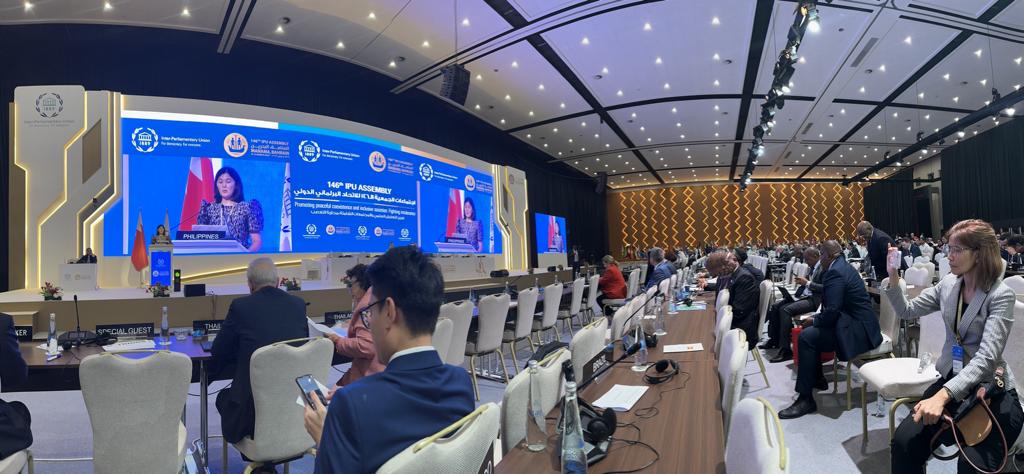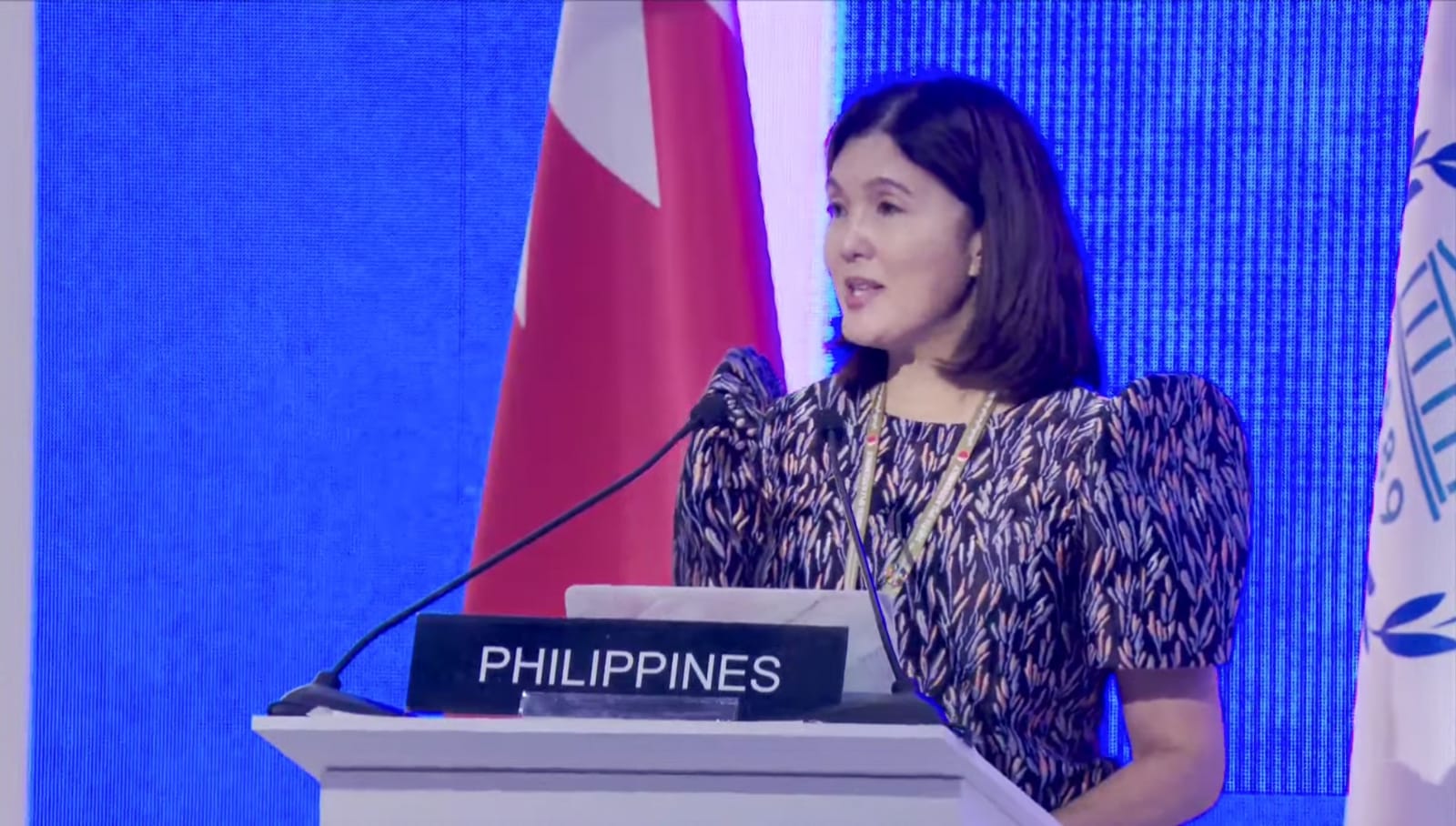Speech of Senator Pia S. Cayetano
Head of Delegation to the 146th Inter-Parliamentary Union (IPU) Assembly and Related Meetings held in Manama, Bahrain
Mr. President, colleagues, ladies and gentlemen, good afternoon.
On behalf of the Philippine Delegation, I would like to extend my warmest greetings on the successful convening of the 146th IPU Assembly. My first IPU was the 112th in 2005.
In this increasingly interconnected world, even the pace and shape of our progress is influenced by different stakeholders. For this, we recognize such interdependence requires us to craft legislation that ensures no one is left behind, especially those belonging to the vulnerable sectors.
In the Philippines, our Parliamentary body endeavors to promote inclusivity through these measures:
On sustainable development and futures thinking: in 2019, I advocated for the creation of the first-ever Committee on the Sustainable Development Goals, Innovation and Futures Thinking in the Philippine Senate. As a party to the UN 2030 Sustainable Development Agenda, the Philippines is committed to integrate the 17 SDGs into our national development plans and policies.
The purpose of this Committee is to track the progress of the Philippines in terms of achieving the various SDGs. It also looks at legislation with the intent of preparing for various futures, and promoting a shift to Futures Thinking as a major policy reform.
One of the major outputs of the Committee was the Committee Report on the Futures of Education in the Philippines, where it examines the current situation, problems, and aspirations, and gathers the recommendations of experts and other stakeholders in order to secure the best possible future for education in the country.
We also allocated funding for Futures Offices in the Department of Education; Department of Health; and Department of Science and Technology in our national budget. And then we provided funding for research on the futures of food systems and food security, in public universities. Similarly, we funded for the futures of food production.
On education and alternative learning: recognizing the importance of education to bring the country towards its most desirable future, the Philippine Parliament created the Second Congressional Commission on Education in 2022, and this representation co-chairs the Subcommittee on Early Childhood Education and Development and Basic Education. The Commission undertakes to make transformative, concrete, and targeted reforms in the education sector, which includes addressing social inequalities and ensuring inclusivity in education.
We also have our Alternative Learning System Act to lessen out-of-school youth and provide them with [free] basic education.
This is in line with our Inclusive Education Act that ensures all schools shall have equitable access to every learner with a disability, such that no learner shall be denied admission based on disability.
On health: the Universal Health Care Act guarantees all Filipinos equitable access to quality and affordable healthcare goods and services. Over the years, we have made access to health care much more affordable. But there is still a lot of work to be done.
Our Sin Tax Reform Laws of 2012 and 2020 ensure funds for Universal Healthcare by taxing harmful products, including alcoholic beverages, tobacco products, and vapes.
Our Cheaper Medicines Act provides for a market-based capping approach to the prices of drugs and medicines, allowing the Secretary of Health to set what we now call the Maximum Drug Retail Price Act.
On women: we have our Magna Carta of Women that requires the allocation of at least five percent of the total budget of every agency for Gender and Development (GAD) programs.
We also have the 105-Day Expanded Maternity Leave Law, extending what was previously 60 days maternity leave for our public and private sectors. We also have the Solo Parent Welfare Act.
On children: “A loving and caring family for every abandoned, neglected, and orphaned child could soon become a reality.” This is a statement I made last year, when we passed the Domestic Administrative Adoption and Alternative Child Care Act, which simplifies the country’s domestic adoption system by making it administrative in nature, and streamlining the processes.
We have many other laws protecting children even in times of disasters. We have laws on ageism, promoting inclusive workplaces to address these specific sectors.
Dear colleagues, before I end, I would like to add that I have personally benefited from these assemblies. Like I said, I joined my first IPU in 2005; it was the 112th IPU held in Manila. Being among and learning from fellow Parliamentarians, mostly women, gave me the opportunity to expand my knowledge and the confidence to discuss these topics and to debate them in my own parliament.
I am a firm believer that women must hold positions in decision-making bodies to truly give voice to women and to achieve genuine gender partnership.
Congratulations to everyone. May we continue to work together to reduce inequalities in [our countries]. Thank you. #



Leave a Reply